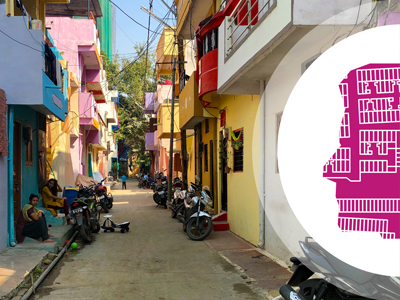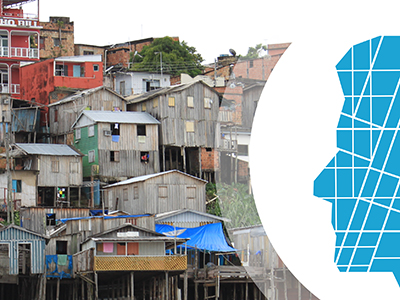Overview
Learn about practical and innovative design approaches to reduce energy use, enhance resource efficiency, ensure affordability, and foster sociocultural integration in the housing sector.
Achieving truly sustainable housing requires a holistic approach that integrates three critical dimensions: social, economic, and environmental sustainability.
This course explores how design decisions can reduce energy consumption and greenhouse gas emissions in housing, thus contributing to climate change mitigation. It also examines strategies for addressing the depletion of natural resources, emphasizing the importance of resource efficiency in the housing sector.
The course also discusses the role of affordable housing in fostering social equity and economic sustainability. It emphasizes the importance of inclusive design practices that support culturally and socially appropriate housing, which can further promote social cohesion and resilient communities.
These principles are examined through three interrelated themes:
Sociocultural Adequacy
Sustainable housing should reflect the needs and values of the communities it serves. The course emphasizes the importance of engaging residents in the design process to ensure their concerns are addressed, giving them a sense of ownership and belonging. Community-informed design promotes stronger social ties and creates more resilient communities.
Affordability
Sustainable solutions should be affordable for all, not just the wealthy. Making sustainable housing also financially accessible for low-income and marginalized communities helps advance social equity and ensure that everyone has access to safe, healthy, and affordable housing.
Materiality
The efficient use of resources – materials, water, and land – is essential to meet the increasing housing demand. The course explores approaches and design strategies that will minimize waste, reduce energy consumption, and limit reliance on non-renewable resources while ensuring resilience against environmental challenges.
Through detailed discussions and case studies of housing projects from diverse regions and contexts, you will gain insights into practical applications. The course offers an interdisciplinary perspective, making it valuable for professionals, students, and anyone interested in sustainable housing design, regardless of background or expertise.
This course was developed by TU Delft’s Faculty of Architecture and the Built Environment in collaboration with the Aga Khan Trust for Culture (AKTC).
What You'll Learn
- Identify social practices and spatial configurations that determine the sustainability of existing dwelling communities.
- Understand how sociocultural adequacy, affordability and materiality can become key factors in the design of sustainable urban communities.
- Recognize key components of the design decision-making process that can contribute to the development of sustainable housing.
- Compare the characteristics of housing schemes designed by different architects, taking account of different social, political, and geographical contexts.
- Evaluate the performance of residential communities, by analyzing the relation between sociocultural, economic, and environmental factors.
Details
Course Syllabus
Module 1:
This will highlight the urgency of tackling sustainability and climate change, focusing on the role of the built environment. The decision to single out the three themes of sociocultural adequacy, affordability and materiality as key factors to promote more sustainable housing design practice is fully explained.
Module 2:
This module will start with a brief introduction explaining the choice of case studies selected from the archives of the AKTC and their relevance to the theme of the MOOC. Following this, each project will be introduced using archival material, fieldwork footage and animations. You will be asked to select a case study from your own region and work on it in the following modules.
Module 3:
In this module, the theme ‘Sociocultural Adequacy’ will be discussed using projects from around the world to expand on the theme. We will then further elaborate sub-topics through animated videos using selected case studies from the AKTC archives.
Module 4:
Following the structure of the previous module, we will focus on the theme ‘Affordability’ again using the core case studies to illustrate the theme and its sub-topics using animations, lectures and fieldwork footage.
Module 5:
This module will once again follow a similar structure and will focus on the theme of ‘Materiality’.
Module 6:
In this module learners will have an opportunity to combine the work they did in modules 2-5 in one final task. They will be asked to develop a critical stance towards the housing challenges in their own context, using the theories and tools presented during the course.
Qualifications
Chartered Engineering Competences
All our online courses and programs have been matched to the competences determined by KIVI’s Competence Structure, a common frame of reference for everyone, across all disciplines, levels and roles.
These competences apply to this course:
- A1: Extend your theoretical knowledge of new and advancing technologies.
- B4: Exercise sound judgement when stakes are conflicting or knowledge is incomplete.
- E3: Undertake engineering activities in a way that contributes to sustainable development and a circular economy.
Admission
This is a Massive Open Online Course (MOOC) that runs on edX.
Prerequisites
- Undergraduate-level education in architecture, urban design, or planning.
or
- Previous knowledge in disciplines that deal with the built environment in general, and the development of housing in particular, social sciences (e.g., art and architectural history, anthropology, sociology) or applied sciences (e.g., civil engineering).


